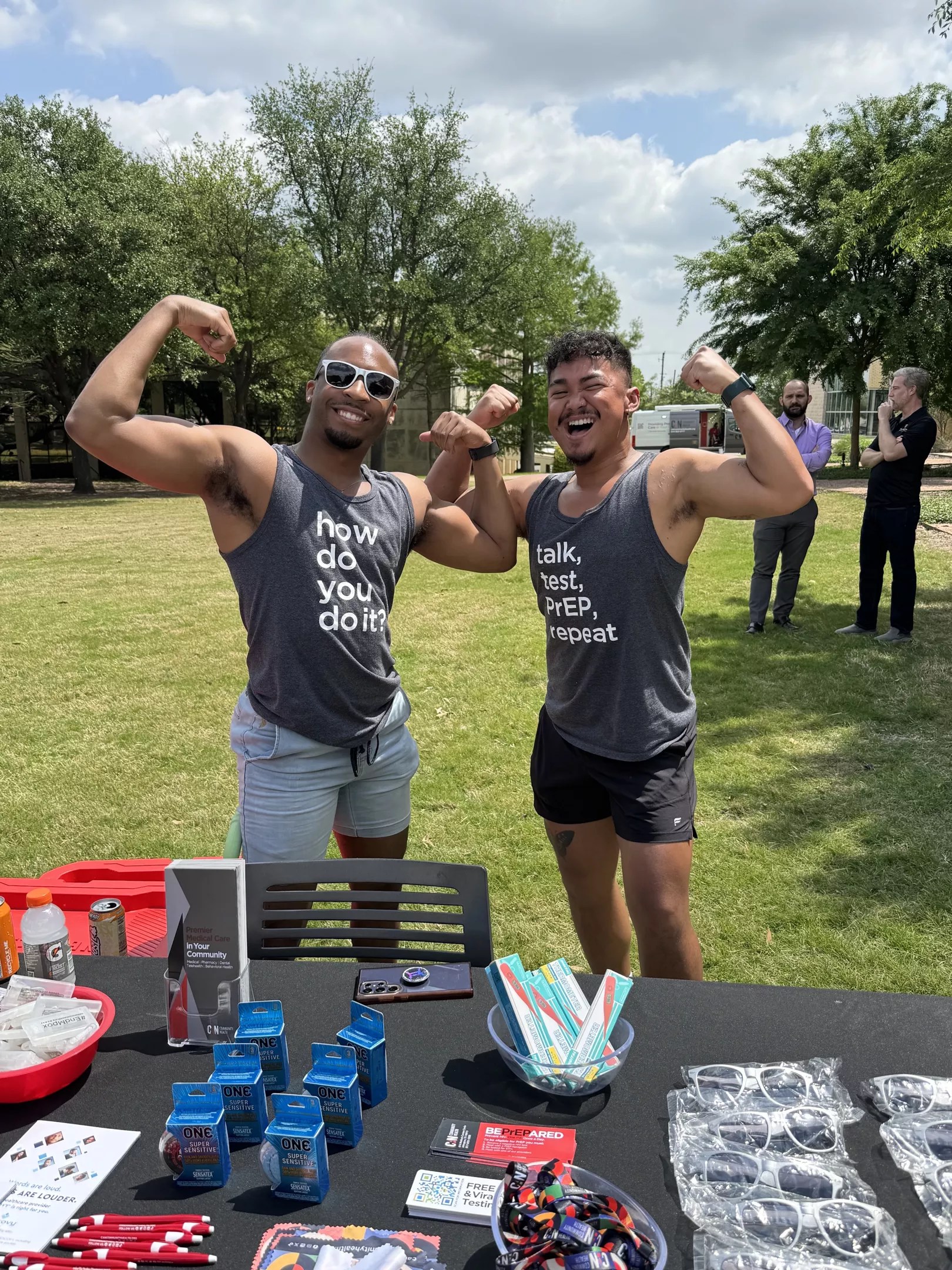
Jordan Maddox

Audio By Carbonatix
This content is sponsored by CAN Community Health.
Dallas is gay. Like, really gay.
According to Visit Dallas, “the greater Dallas metro area has the largest number of LGBTQ+ people in Texas (211,000) and the sixth-largest in the United States.”
As we step into Pride Month and celebrate Dallas’ queerness, we would be remiss to ignore one looming health topic within the LGBTQ+ community: the human immunodeficiency virus (HIV) epidemic. Left untreated, HIV can turn into acquired immunodeficiency syndrome (AIDS), which is “the most advanced stage of HIV infection,” according to the US Department of Health and Human Services.
This year, make your gift count –
Invest in local news that matters.
Our work is funded by readers like you who make voluntary gifts because they value our work and want to see it continue. Make a contribution today to help us reach our $30,000 goal!
The Centers for Disease Control (CDC) reports that 2023 saw more than 39,000 people with HIV diagnoses, more than 80% were men, with 66% attributed to male-to-male sexual contact. HIV is also reportedly more prolific in southern states, with more than half of all diagnoses coming from the South.
The CDC’s preliminary data estimates that there were over 2,700 HIV diagnoses in Texas in 2024. While that number is down an estimated 45% from 2023, southern states like Texas still see the highest numbers of HIV diagnoses annually. That data, combined with the Kaiser Family Foundation’s report that Texas has the highest percentage of people without health insurance, at 16.3%, is grim.
The good news is that HIV is preventable and treatable, and a Dallas clinic wants to make it easier to access care and prevention.
CAN Community Health in Oak Lawn is working to fight the stigma surrounding HIV, STIs and sexual health while breaking down financial barriers for those without access to healthcare.
About CAN Community Health
CAN Community Health‘s (CAN) Dallas location opened its doors in May 2025 inside the office of Steven M. Pounders, MD. Its goal is to treat and prevent HIV, help people take control of their sexual health, educate people on the importance of getting tested and help them navigate financial barriers to accessing healthcare.
“No one should feel that they can’t get help,” said Dr. Steven Barnett, the Chief Medical Officer and Senior Vice President of Medical Services at CAN Community Health. “Regardless of the ability to pay, we have some grant funding that allows us to be able to provide [healthcare] for anyone that is at risk and is willing to take that preventative step.”
CAN is a Ryan White provider, and under the Ryan While HIV/AIDS Program, anyone living with HIV who does not have insurance or the ability to pay their entire bill has access to supplemental healthcare. Some are even eligible for HIV care at no cost.
While financial access to healthcare is one obstacle many North Texans face, CAN also recognizes that transportation and the ability to visit the clinic during its limited office hours are additional issues that people must overcome to receive potentially lifesaving treatment. Community outreach is one of the many ways that CAN works to educate the public. Courtesy CAN Community Health
“We provide transportation through Lyft or Uber Health, so we’re trying to take away all barriers,” Barnett said. “We can provide Telehealth when appropriate.”
While their main mission is to positively impact the community by providing screenings, treatment and education surrounding HIV/AIDS and STIs, the clinic also wants to be a medical home for patients instead of just a one-time pit-stop.
The clinic offers primary care, too, with a wide variety of healthcare services outside of HIV-related services.
“You don’t have to get HIV,” Barnett said. “If you are living with HIV and you haven’t been treated, we can get you back where you need to be.”
He urges that those living with HIV should seek treatment sooner rather than later because, left untreated, there are irreversible consequences. HIV is incredibly treatable and preventable, and people should not be afraid of screening or treatment.
“Please don’t sit out there and be fearful of getting tested, because it doesn’t matter which way you go,” Barnett said. “If you’re negative, we can give you PrEP, or at least, we can give you tips on how not to get HIV. But if you’re positive, you can live a totally normal life. We can keep it in full remission. You can live your life with no changes, other than accepting treatment.”
There are a few treatment options, making the process more accessible and less impactful on a patient’s day-to-day life, based on preference.
Patients can opt to take a once-a-day pill, which Barnett says has no side effects. Injectables are another option for those who are not confident in their ability to take a daily pill or simply do not want to. With injectables, patients only need to get an injection once every two months.
“[It’s] easier to manage than blood pressure, to be honest,” Barnett said.
CAN Community Health is located inside the offices of Steven M Pounders, MD, at 4211 Cedar Springs Rd. Ste. 200A, Dallas TX.